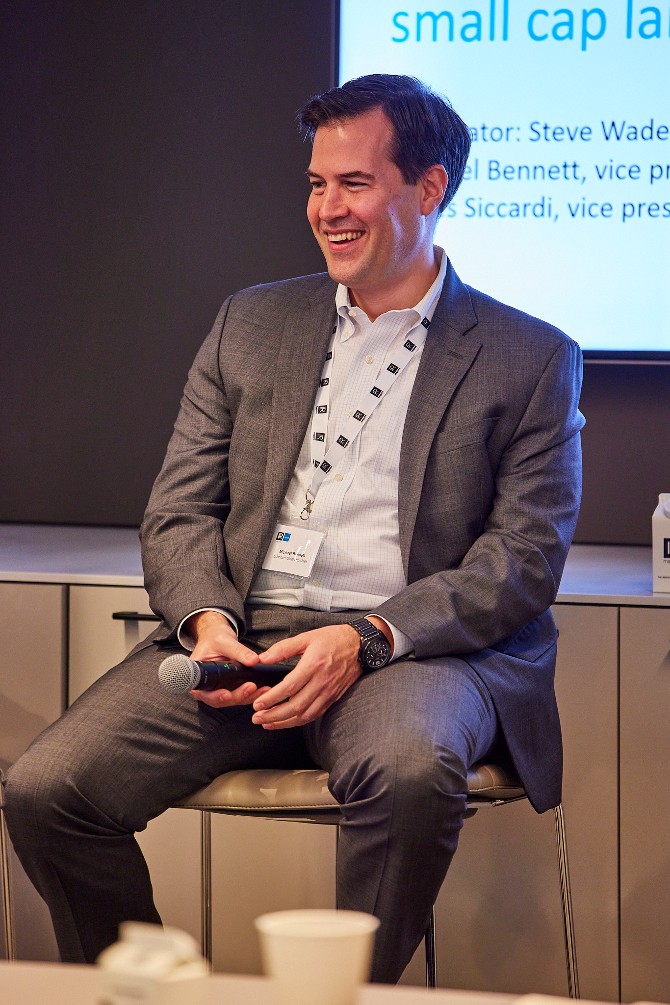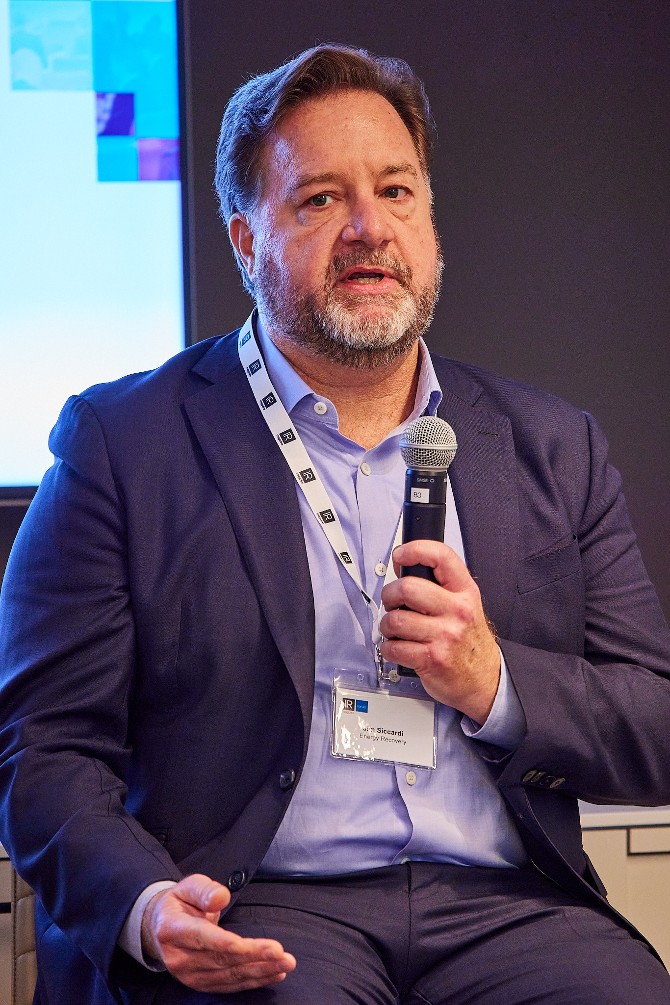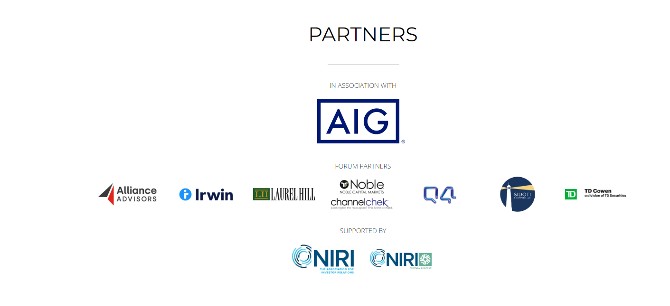Small-cap companies face unique challenges in today’s volatile economic landscape, marked by factors such as volatility and uncertainty, a plethora of regulatory changes, increasing competition for capital and technological disruption, among others.
At the recent IR Magazine Forum – Small Cap in New York, leading IROs Michael Bennett, vice president of IR at Schnitzer Steel Industries, and James Siccardi, vice president of IR at Energy Recovery, discussed strategies for successfully navigating these hurdles and finding new business opportunities.
Playing the cards right
Bennett, who leads the IR function at the Oregon-headquartered metals recycling company, acknowledged the first uphill battle small caps face is gaining investor attention, particularly when they lack a strong reputation. In this context, he noted that flexibility becomes paramount.
‘For small-cap companies, getting on the radar of investors – especially new ones – can be a real challenge,’ he said. ‘You can do all the background and targeting work you want, but if investors aren’t willing to meet with you, your job isn’t done.’

In such scenarios, Bennett emphasized the importance of exploring new markets, referring to his company’s approach to expanding their investor outreach to London and Canada as examples. He highlighted the need for management teams to also embrace flexibility in their approach. While filling the day with investor meetings at sector conferences is ideal, he noted that panel discussions and a smaller number of high-quality investor meetings can also be effective.
When it comes to investor targeting, Siccardi added that it’s important for companies to understand ‘not only the current audience but also the one that you want’. He emphasized the value of proactive outreach to investors whose portfolios align with the company’s offerings and highlighted the significance of building long-term relationships by understanding what aspects of the company’s story resonate with shareholders.
‘When I first started the job, I was asked how I was going to get more coverage,’ Siccardi recalled. ‘And my question was, Why do you want more coverage? In a post-Mifid II world, you need to understand what the sell side is about: the sell side is about making money.’

He added that having additional coverage won’t necessarily get companies the desired results. ‘Proactively reaching out to those for whom your stock makes sense can yield higher hit rates,’ he said.
Siccardi also shared with the audience his company’s proactive approach to international markets, including the European market, at a time when the US appears to be less receptive to small-cap growth stocks.
‘Last year, we realized that small-cap growth stocks, especially those with an ESG tilt, were out of vogue in the US,’ he noted. ‘So rather than be reactive and wait for the phone calls to come, we went back to where ESG started. We went to Europe three times [and] the reception was such that we were there for a total of 10 and a half weeks. We are back again this year for one trip for four weeks. The story resonates there.’
Leveraging resources outside of IR
Panelists also delved into the importance of sustainability and ESG factors in investor engagement, with Bennet offering advice on how to get past the limited resources hurdle by leveraging other teams’ expertise.
‘The resources are just getting tighter and tighter these days, unfortunately. But what it means is that we’ve learned to adapt and find out what’s important for us,’ he said. ‘As a metals recycler, the ESG story and having strong ESG ratings is really important for us.’
By leveraging the company’s ESG team of four and delegating other tasks to third-party resources such as targeting advisory consultants, Bennett said his firm was able to gain some recognition.
‘For me, ESG feels like it’s a second job, in terms of the targeting work that needs to be done, in terms of the sustainability reports, setting goals and making sure that we incorporate sustainability into all of our messages. It’s a huge job but, fortunately for us, it’s paid off,’ he said.
Flexibility, adaptability, proactivity
Success hinges on adopting a flexible approach, exploring innovative strategies to get new investors on board, fostering adaptability within the company’s C-suite to navigate today’s market complexities and proactively engaging with stakeholders.
In his closing remarks, Siccardi stressed the importance for IROs and their companies to understand the type of shareholder base they want and to target proactively. ‘You will need to know your audience, know who you want to be and what type of shareholder base you want to have and then proactively go after those people,’ he said.
‘It doesn’t mean you can’t have some investors in the shareholder base that aren’t what you’re looking for but, if you proactively target who you are looking for, you can build your shareholder base. And one of the things that’s nice about small-cap companies is that you have limited float. Some people say that’s a bad thing – I think it’s a good thing.’










